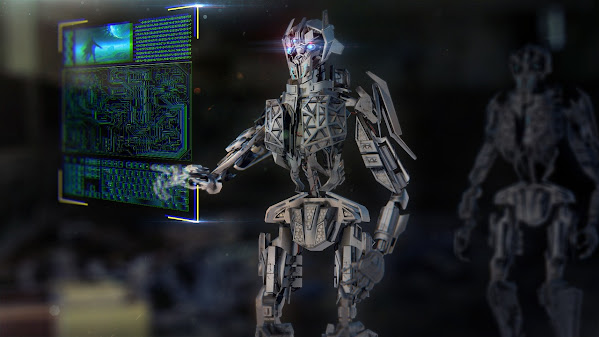Introduction
Artificial Intelligence (AI) has emerged as a transformative technology, revolutionizing industries and reshaping our world in unprecedented ways. Over the past few decades, AI has made significant advancements, and its future holds immense potential for even greater innovation. As AI continues to evolve, it promises to optimize processes, enhance decision-making, and create new opportunities across various sectors. This article explores the exciting future of AI, its impact on industries, and how it will shape our world.
Intelligent Automation and Increased Efficiency
One of the most profound impacts of AI lies in intelligent automation. AI-powered systems are increasingly being integrated into industries to streamline processes, eliminate repetitive tasks, and enhance overall efficiency. By leveraging machine learning algorithms and deep neural networks, AI enables machines to learn from vast amounts of data, make informed decisions, and perform complex tasks autonomously.
In manufacturing, AI-powered robots and automation systems are revolutionizing production lines, improving precision, and accelerating manufacturing processes. In healthcare, AI is transforming diagnostics, enabling faster and more accurate analysis of medical images and patient data. AI-driven chatbots are enhancing customer service in various sectors, providing instant responses and personalized experiences.
Data-Driven Insights and Decision-Making
The future of AI is closely intertwined with data-driven insights and decision-making. As the volume of data generated continues to grow exponentially, AI algorithms will play a crucial role in extracting valuable insights from this vast information pool. By analyzing data patterns, AI can uncover hidden correlations, predict trends, and support informed decision-making processes.
In finance, AI algorithms can analyze market trends and historical data to identify investment opportunities and mitigate risks. In transportation, AI-powered systems can optimize traffic flow, reduce congestion, and enhance logistics planning. In retail, AI-driven recommendation engines can provide personalized product suggestions to customers based on their preferences and browsing history.
Personalized Experiences and Customer Service
The future of AI will bring about highly personalized experiences and customer service across industries. With the ability to analyze massive amounts of data, AI can understand individual preferences, behaviors, and needs. This enables businesses to offer tailored products, services, and recommendations to enhance customer satisfaction.
In the entertainment industry, AI algorithms can analyze viewers' preferences to recommend movies, shows, or music that align with their interests. In e-commerce, AI-powered chatbots can engage in natural language conversations with customers, answering queries and providing personalized shopping assistance. Virtual assistants, powered by AI, can understand user preferences and proactively offer relevant information and recommendations.
Healthcare Transformation and Improved Outcomes
AI's potential to transform healthcare is immense. The future of AI in healthcare holds the promise of improved diagnostics, more effective treatment plans, and enhanced patient outcomes. AI algorithms can analyze medical records, genetic data, and clinical research to identify patterns and aid in the early detection of diseases.
In radiology, AI-powered systems can analyze medical images, such as X-rays and MRIs, to detect abnormalities and assist radiologists in diagnosis. AI-driven virtual nurses can monitor patient vital signs and provide real-time updates to healthcare professionals, enabling proactive interventions. AI-enabled drug discovery platforms can analyze vast molecular datasets to accelerate the development of new therapies.
Conclusion
Artificial Intelligence is set to revolutionize industries and shape our world in profound ways. From intelligent automation and data-driven decision-making to personalized experiences and improved healthcare outcomes, AI's potential is vast and trans-formative. As we navigate the future, it is crucial to embrace AI responsibly, addressing ethical concerns and ensuring transparency in the algorithmic decision-making process. The future of artificial intelligence holds immense promise for transforming industries and shaping our world. The healthcare sector stands to benefit from improved diagnostics, personalized treatments, and advanced robotic surgeries. Transportation systems will become safer, more efficient, and autonomous. Our interactions with technology will become more seamless and personalized, thanks to advancements in NLP and virtual assistant technologies. AI will permeate various aspects of our daily lives, from personalized recommendations to sustainable practices. However, it is crucial to address ethical concerns and ensure that AI development is guided by principles that prioritize the well-being of humanity. With responsible development and careful consideration, AI has the potential to revolutionize industries and create a better future for all.

Comments
Post a Comment